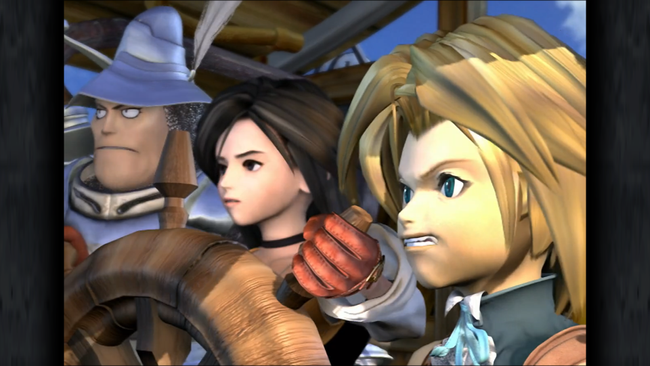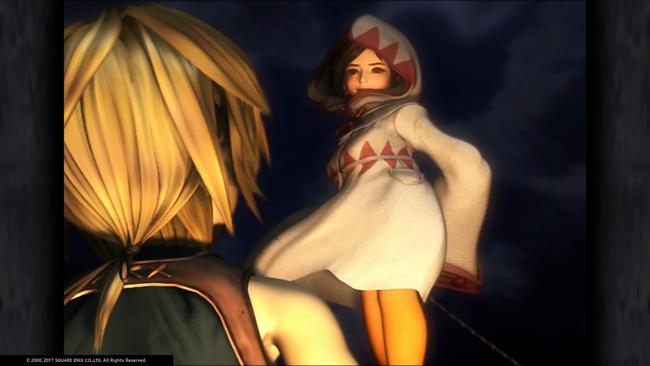
Final Fantasy IX 25th Anniversary Famitsu interviews cover more behind-the-scenes dev talks
The 1908th Weekly Famitsu magazine issue published this year on July 24 features a special coverage on the 25th anniversary of Final Fantasy IX. The segment also includes new interviews with three key staff members behind the title. They are the event designer Kazuhiko Aoki, character designer Toshiyuki Itahana, and music composer Nobuo Uematsu.
As a quick foreword, these new interviews generally covered more behind-the-scenes talk about the game's development, often with comparisons between present-day games that have mostly undergone simultaneous global localizations. However, there were absolutely no questions asked about plans to produce a new remake of the 2000 PS1 RPG. The interviews instead covered the recently published 25th Anniversary projects, such as the vinyl record and picture book.
If you want to know more about the topics talked about in the interviews, you can find our summaries of them right below.

Summary of Kazuhiko Aoki's interview
- As the Event Designer and the Event team leader, Aoki began his job by expanding the game's plots initially made by Hironobu Sakaguchi. He would then distribute the plots to the people in charge of producing each event, and then supervise the parts that were difficult to understand.
- In the latter parts of the development, Aoki would regularly check the data volumes via Excel. He also notably adjusted how the 4-disc PS1 release of FFIX could have smooth disc transition moments. By blocking access to a later dungeon, the team could prevent switching discs just to enter it.
- The characters' full names were not finalized until the end of the development. This was part of a more flexible development pace in the past, because nowadays the full names and scripts have to be determined early due to the voiceover recordings. The team also modified Vivi's monologue at the ending around 7-8 times until the very end.
- In addition, simultaneous localizations have been the norm in recent years, but back then Squaresoft only worked on the Japanese release first before they did the English releases, so the dev team had more leeway on the pace. They would add a lot more characters and plots during the latter half of development (such as Garland's unique speaking accent and the petrification of Blank) and then realize they did those only after the game had gone gold.
- Aoki also used to talk a lot with members of the Map team since they have a direct relationship with Events. But he almost never talked with the Battle team, which did things their own way. When Vivi did not take a victory pose after defeating the Black Mage, he noted that the Battle team did this of their own volition.
- When Aoki was told to "return to the roots" for FFIX's theme, he first thought of the Crystal, since not all FF entries had it. But while he intended to have the Crystal appear at the beginning, he appeared to have failed as players noted that the Crystal only appeared for a bit at the ending segments.
- While there were several songs made in accordance with the story, Nobuo Uematsu made the remaining songs on his own. "You're Not Alone" also falls in the latter category. When Aoki asked Uematsu for a new recommended track, the latter gave him "You're Not Alone" and it just happened to fit with a specific part in the plot. So Aoki had the PIC of that event listen to the track and have it fit the music's atmosphere.
- Aoki actually never talked with the director Hiroyuki Ito about the game's story, endings, and the "Melodies of Life" lyrics. He only remembered talking with Ito about the Chocobo Hot and Cold minigame.
- When Aoki was tasked to work on a picture book based on FFIX, he wondered how he could do it without breaking the public perception taboo. This is because he believes that while the game belonged to the dev team during its development, it became owned by the public after release, with each individual person having their own interpretation of it. Aoki ended up changing a part of the canon history in this book by having Vivi get the Theater Ticket from Quan.
- Aoki immediately decided that Vivi would be the main character in this picture book. However, he first considered an in-game moment where Vivi needed to be encouraged. This was where Itahana and the editors suggested him not to make a gloomy story, since the target audience includes children and people who never played FFIX. Aoki then decided to focus on the short time Vivi was living together with Quan.
- This picture book also includes the moment Quan gave the name Vivi. The name was derived from turning VIVI to Roman numerals, which would make it 6 feet & 6 inches; later regarded as the character's ideal height. Reversing this name would end up with IVIV = 4 feet & 4 inches, which is closer to Vivi's current actual height.
- Aoki is ready to work on a third picture book when he has received an offer for it. He also noted that creating a picture book or novel is different from creating a game. When creating games, he would start from the gameplay systems before creating the immersive world. It would take hundreds of people to help create the game, and around 70%-80% of players will enjoy the game from various perspectives like gameplay or story. But if he only writes a story, he feels like the reception will be split into 50:50 between those who like it and those who don't. In addition, the images in books are static, so the rest would be up to the readers' imaginations.
- Aoki had just left Square Enix at the end of June 2025. And when this interview was conducted the following day on July 1, he had just applied for a National Health Insurance. After spending a lot of time and power on creating games, he currently only plans a full rest. However, Aoki added that once one has known the fun factor of creating things they could not be quite able to quit, so one day he wants to return to such activity again.
The interview concluded with a message from Aoki to FFIX fans:
I've talked about this too just before, but the main characters in this picture book—Vivi and Quan—are not good in interacting with other people, but the story will make you think that both of them "still feel that life is fun". I hope everybody will enjoy it too. The original story in FFIX talked about life and how to live while using it. I have thought that the active parts where each individual feels "I'm alive" could be established as a story. In this [picture book], in addition to the part about "living", I wrote what I could depict about parts like "enjoying one's life" and "how to rise up again after feeling down" in the two's livelihoods, so I hope you'll get to check it out.
Summary of Toshiyuki Itahana's interview
- There were 3 new key visuals drawn for FFIX's 25th anniversary. Two of them are made opposite each other, with the first one having Zidane's party gazing towards the Iifa Tree, and the other featuring Kuja inside the tree. Famitsu here noticed that none of the characters are facing towards the viewers. Itahana noted that so many people worldwide have already played FFIX, so he left the characters' facial expressions to the players' imagination, since they should have known how the characters felt throughout the story.
- The third key visual, showing Vivi looking upwards at Zidane standing on a structure in front of a large moon, was made with models specifically created for this 25th anniversary.
- The newly released vinyl record includes a new rendition of "Melodies of Life" by the original singer Emiko Shiratori. Itahana had additional feelings when he compared the renditions between the original (when Garnet looked back at the just-concluded journey) and the new one (after Garnet has been ruling as the Queen of Alexandria for a long time).
- In the first collaborative FF picture book with Aoki (Chocobo and the Airship), Itahana had a lot of fresh trial-and-error attempts as he had a different starting platform from the usual. But with the second one being based on a familiar setting in FFIX, he could draw in the same way as the original. If there were to be a third book in the future, Itahana would like to completely draw Aoki's ideas without omitting anything from the latter.
Itahana's interview concluded with him reminiscing about Aoki who had just left Square Enix:
Mr. Aoki is like a hermit who is similar to the grandpa in this picture book but a little smarter, and the image of him spending his time elegantly in cafes is strong. Even during the development work in Honolulu, when I realized he wasn't on his seat, I got contacted by him like "I'm drinking ice latte nearby, so you should come here too, Itahana-kun" and I got often invited to a cafe near the Ala Moana beach. He is always polishing ideas no matter where he is, and once he comes back to his seat, he fiercely inputted a lot of data. But the one that stays in my mind is in the final few months of development, when he faced the dev kit regardless of day or night and said "A game's soul resides in the final 3 months."

Summary of Nobuo Uematsu's interview
- This interview started by covering the stay at Square's development studio in Hawaii for a whole year. Uematsu personally liked the Hawaii stay, and he also remembered how he took a license for scuba diving and participated in the Honolulu Marathon and reached the finish in 8 hours 29 minutes; just before the time record limit ran out. Uematsu also jokingly assumed that Sakaguchi wanted to live there, but he noted that Square back then was infamous for taking rash and planless decisions. He also added that the working atmosphere in the Hawaii studio was totally the same as Japan as he worked in a similar secluded room with sound insulation without any outside windows. He also mostly met the same colleagues from Japan (apart from the American animators who worked on The Spirits Within movie), but he also noted that not all families of the Japanese staff could adapt to a long life in Hawaii.
- Before heading to Hawaii, Uematsu took a 2-week holiday to Europe. As he wanted to use old instruments for FF9's soundtrack, he wanted to grasp the feel of medieval Europe by touring old castles with his wife.
- When Square successfully included songs like "Liberi Fatali" and "Eyes on Me" in FF8, Uematsu contemplated adding tracks with more life-like audio quality into the CD-ROM storage for the new game. But instead of a regular orchestra, he wanted to use ancient music. However, he admitted that he didn't entirely use that, because that would mean songs like "Melodies of Life" would not exist as-is, and the over 140 tracks composed for the game would lack variety.
- The FF9 title theme (The Place I'll Return To Someday) was the first song made back then, and it served as a deciding factor to determine the game's world setting. However, Uematsu also noted that the story and character settings underwent drastic changes around a month after the Hawaii stay began.
- Before Uematsu even started working on FF9's soundtrack, he had wanted to learn how to use the ancient music instruments. He reminisced how the Catherina Early Music Consort group rejected his request as games was still not well recognized 25 years ago, but they finally agreed to arrange the FF9 title theme for the Bra-Bra Final Fantasy concert held later on.
- Director Hiroyuki Ito was the one who wrote the "Melodies of Life" lyrics. The song was originally planned to start with the phrase that begins with "私が死のうとも / If I should leave this lonely world behind" but it was on the verge of removal as the singer Emiko Shiratori did not like such a beginning. So the song was eventually rearranged, though this phrase was still retained in the final part.
- Uematsu started working on vocal songs from his childhood years, but when he started working on games, he initially only made instrumental tracks. FF8's "Eyes on Me" was his first chance to produce a vocal song for a game. And as the song was very well received, it opened more opportunities to fulfill Uematsu's desire to do a vocal song in every subsequent game.
- However, Uematsu does not like Hollywood films that have unrelated band songs at the staff roll. He is also against different regions having different theme songs. He prefers having the game's producer, director, or writer do the theme song's lyrics, since they understand the game's settings the best. This led to his conviction that the likes of "Eyes On Me", "Melodies of Life", and "Suteki da ne" became very good songs.
- Uematsu noticed that there are more people outside Japan than domestically who declare themselves as FF9 fans. But Uematsu himself also has quite a lot of favorite tracks from FF9. Other than the "Melodies of Life" and "The Place I'll Return To Someday", he also mentioned Roses of May and the final boss theme.
- He also reminisced about the final boss theme that he wanted voices of dead people at the beginning, so he gave an order to the synthesizer operator Keiji Kawamori to "go to Hell for a bit to record the voices"
- However, there are no tracks that left an impression on Uematsu himself during production. This is because he has a lot of self-criticism of the in-game tracks he has finished. He is however very willing to listen to his tracks' orchestra arrangements made by others.
- "Melodies of Life" got a new recording in the 25th Anniversary Timeless Tale vinyl, but Uematsu noted that it would be boring if the song were re-recorded as-is, so he opted to change the key. This also stemmed from the initial choice between E or E♭(flat) for the original recording. Since the team went with E for the original, they opted with E♭ for this vinyl recording.
- Uematsu also went back to the deliberations on the choices for FF9's theme song singer. A staff member brought up Emiko Shiratori's name, and Uematsu had recognized her as part of the Toi et Moi duo that was popular in his generation and performed the theme song of the 1972 Sapporo Winter Olympics. He was convinced that her voice would definitely fit in FF9.
- He also reminisced about the appeals of vinyl records: The large covers were so impactful that people of his generation would first think of the cover when finding a song's vinyl, and he ended up feeling disappointed when the smaller CD cases took over. In addition, people need to keep an eye on the vinyl while it is playing, and they can also look at the cover and booklet in the middle, so they had to dedicate around 20 minutes entirely to the vinyl.
The interview concluded with the following comment from Nobuo Uematsu:
"[...] I've said it before, but FFIX has a lot of songs I'm also personally fond of, and one of them is the newly recorded "Melodies of Life" in this vinyl. You can also immerse yourself in nostalgia with this vinyl, and I'd be glad if you get to play the game and experience that world once again with that."

